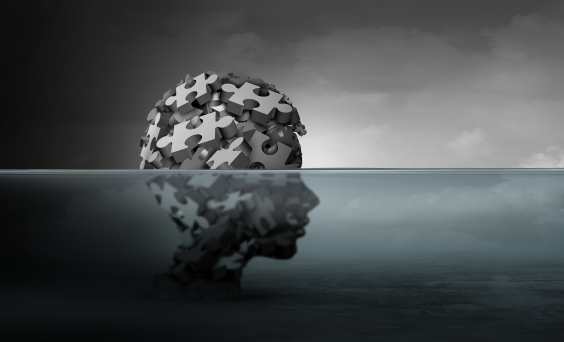Get Full Access with a FREE Account
- Latest medical news
- Peer-reviewed clinical content
- Conference coverage
- Free CME/CE
- Quizzes to test your knowledge
- Research summaries
Latest News
April 24, 2024
Lentigines: Study Finds Less PIH With Modified Laser Treatment
April 24, 2024
ASLMS: American Society for Laser Medicine and Surgery
MDedge Dermatology
April 24, 2024
Hepatitis Kills 3500 People Each Day, Says WHO
April 24, 2024
MDedge Infectious Disease
April 24, 2024
Vaccine-Preventable Diseases Surge: Europe Sounds the Alarm
April 24, 2024
MDedge Infectious Disease
April 24, 2024
How These Young MDs Impressed the Hell Out of Their Bosses
April 24, 2024
MDedge Internal Medicine
Photo Challenge

April 16, 2024
Progressively Worsening Scaly Patches and Plaques in an Infant
April 16, 2024
MDedge Dermatology
Clinical Reviews

April 8, 2024
Evaluating the Cost Burden of Alopecia Areata Treatment: A Comprehensive Review for Dermatologists
April 8, 2024
MDedge Dermatology
March 5, 2024
Depression As a Potential Contributing Factor in Hidradenitis Suppurativa and Associated Racial Gaps
March 5, 2024
MDedge Dermatology

January 30, 2024
Impact of Ketogenic and Low-Glycemic Diets on Inflammatory Skin Conditions
January 30, 2024
MDedge Dermatology
January 30, 2024
Expanding the Psoriasis Framework: Immunopathogenesis and Treatment Updates
January 30, 2024
MDedge Dermatology
Coronavirus Updates
April 24, 2024
Federal Trade Commission Bans Noncompete Agreements, Urges More Protections for Healthcare Workers
April 24, 2024
MDedge Infectious Disease
April 18, 2024
COVID Vaccinations Less Prevalent in Marginalized Patients
April 18, 2024
MDedge Infectious Disease
April 18, 2024
4 Years In, a Sobering Look at Long COVID Progress
April 18, 2024
MDedge Infectious Disease
April 5, 2024
Study Shows Nirmatrelvir–Ritonavir No More Effective Than Placebo for COVID-19 Symptom Relief
April 5, 2024
MDedge Infectious Disease
Business of Medicine
April 24, 2024
How These Young MDs Impressed the Hell Out of Their Bosses
April 24, 2024
MDedge Internal Medicine
April 24, 2024
Federal Trade Commission Bans Noncompete Agreements, Urges More Protections for Healthcare Workers
April 24, 2024
MDedge Family Medicine
April 23, 2024
CRC Screening in Primary Care: The Blood Test Option
April 23, 2024
MDedge Hematology and Oncology
Conference Coverage
April 24, 2024
Lentigines: Study Finds Less PIH With Modified Laser Treatment
April 24, 2024
ASLMS: American Society for Laser Medicine and Surgery
MDedge Dermatology
April 24, 2024
Teleneurology for Suspected Stroke Speeds Treatment
April 24, 2024
AAN: American Academy of Neurology
MDedge Neurology
April 24, 2024
Novel Agent Curbs Alzheimer’s-Related Agitation
April 24, 2024
AAN: American Academy of Neurology
MDedge Neurology
April 24, 2024
Genetic Signatures May Predict CAR T Responders
April 24, 2024
AACR: American Association for Cancer Research
MDedge Hematology and Oncology
April 24, 2024
Avoidance Predicts Worse Long-term Outcomes From Intensive OCD Treatment
April 24, 2024
MDedge Psychiatry
Medicine's Lighter Side

June 15, 2023
The road to weight loss is paved with collusion and sabotage
June 15, 2023
MDedge Internal Medicine
Perspectives
April 24, 2024
GLP-1 Receptor Agonists: Which Drug for Which Patient?
April 24, 2024
MDedge Endocrinology
April 23, 2024
CRC Screening in Primary Care: The Blood Test Option
April 23, 2024
MDedge Hematology and Oncology
Clinical Edge Journal Scan
April 24, 2024
Lentigines: Study Finds Less PIH With Modified Laser Treatment
April 24, 2024
ASLMS: American Society for Laser Medicine and Surgery
MDedge Dermatology
April 24, 2024
Hepatitis Kills 3500 People Each Day, Says WHO
April 24, 2024
MDedge Infectious Disease
April 24, 2024
Vaccine-Preventable Diseases Surge: Europe Sounds the Alarm
April 24, 2024
MDedge Infectious Disease
April 24, 2024
How These Young MDs Impressed the Hell Out of Their Bosses
April 24, 2024
MDedge Internal Medicine









